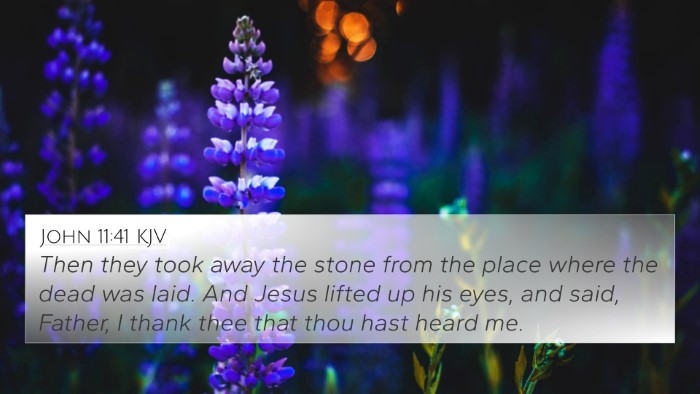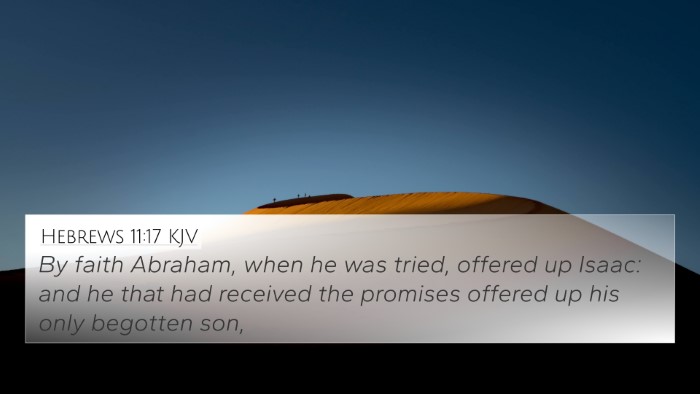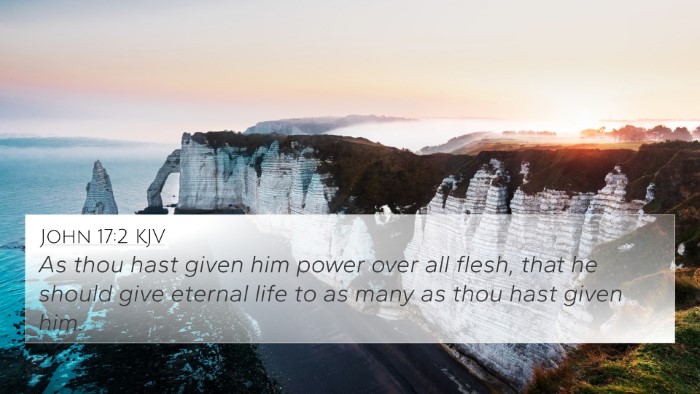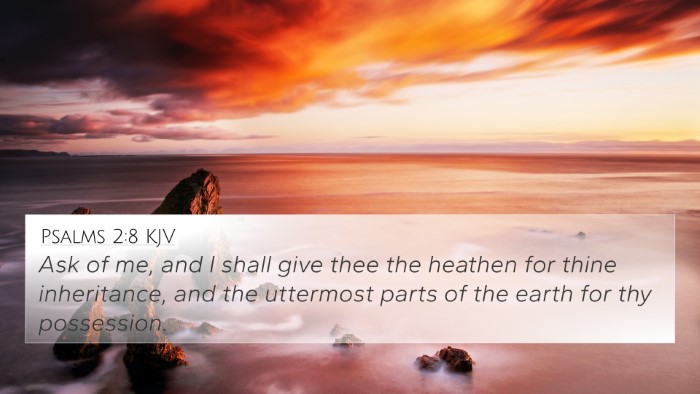Understanding John 11:22
In John 11:22, the verse reads as follows: "But even now I know that whatever you ask from God, God will give you." This statement is made by Martha in the context of her brother Lazarus's death. Below, we will explore the meaning of this verse, drawing insights from notable public domain commentaries, as well as examining its connections to other Bible verses.
Thematic Insights
This verse reflects themes of faith, hope, and the power of Jesus. Martha expresses her belief that Jesus holds authority with God, and that through Him, any supplication made could be answered favorably. Her statement is a profound acknowledgment of faith in the midst of grief.
- Martha's Faith: Despite her sorrow, Martha demonstrates a clear understanding of Jesus’ divine authority. Matthew Henry notes that this is a "faith that looks beyond immediate despair." She does not just see her brother’s death but acknowledges a possible future hope through Christ.
- The Nature of Prayer: Martha's assertion about asking God shows her understanding of prayer as a two-way communication where faith plays a crucial role. According to Adam Clarke, this emphasizes “the importance of believing prayer.”
- Theological Implications: Albert Barnes interprets Martha’s words as a recognition of Jesus as the mediator between humanity and God. This signifies the broader theme of intercession within Christian theology.
Cross-Referencing Biblical Texts
John 11:22 can be linked to several other passages in the Bible that echo its themes of faith and the power of prayer. Here are some key verses that interconnect with John 11:22:
- John 14:14: "If you ask anything in my name, I will do it." This verse reinforces the notion of asking Jesus in confidence, similar to Martha's declaration.
- Matthew 21:22: "And whatever things you ask in prayer, believing, you will receive." This emphasizes the necessity of faith when making requests to God.
- Hebrews 4:16: "Let us therefore come boldly to the throne of grace, that we may obtain mercy and find grace to help in time of need." This speaks to the accessibility of God's grace through Jesus.
- Romans 8:32: "He who did not spare his own Son, but delivered him up for us all, how shall he not with him also freely give us all things?" This verse affirms the belief that God provides for those who trust in Him.
- John 15:7: "If you abide in me, and my words abide in you, you will ask what you desire, and it shall be done for you." Here, the connection between relationship with Christ and answered prayer is emphasized.
- James 1:6: "But let him ask in faith, with no doubting." James teaches the importance of unwavering faith, which parallels Martha's outlook.
- Philippians 4:6-7: "Be anxious for nothing, but in everything by prayer and supplication, with thanksgiving, let your requests be made known to God." This encourages believers to present their needs with faith and gratitude.
Connections Between Bible Verses
When analyzing John 11:22, it’s beneficial to explore how it interacts with both the Old and New Testaments. This can enrich our understanding of its context and implications:
- Old Testament Foundations: Psalm 30:2 - "O Lord my God, I cried to you for help, and you have healed me." This verse also reflects the theme of confidence in God's ability to respond to prayer.
- Messianic Prophecies: Isaiah 25:8 - "He will swallow up death in victory." This prophecy foreshadows the power of Christ over death, providing a backdrop to Martha's faith declaration.
- New Testament Affirmations: Mark 11:24 - "Therefore I tell you, whatever you ask in prayer, believe that you have received it, and it will be yours." This reaffirms the message found in John 11:22 concerning asking with faith.
Comparative Bible Verse Analysis
It’s also important to conduct a comparative analysis of other verses that showcase similar themes. Consider the parallels with John 11:22 and how these relationships enhance our understanding of faith and prayer:
- Peter’s Faith: In Matthew 14:31, when Peter walks on water, Jesus immediately assists him when he begins to sink, demonstrating Jesus' readiness to respond to the cries of faith.
- Faith of the Centurion: Matthew 8:8 recounts a centurion who says, "Lord, I am not worthy that you should come under my roof, but only speak a word, and my servant will be healed." This reflects a similar understanding of Jesus’ authority to invoke healing even from afar.
- The Syrophoenician Woman: In Mark 7:29, Jesus acknowledges her faith when she requests healing for her daughter, indicating that genuine belief is vital in appealing to God’s mercy.
Tools for Bible Cross-Referencing
In the context of studying verses like John 11:22, utilizing various tools for Bible cross-referencing can be invaluable:
- Bible Concordance: A comprehensive listing of biblical terms that enable deeper exploration of related scriptures.
- Cross-Reference Bible Study Guides: Resources that highlight passages sharing similar themes or phrases.
- Bible Reference Resources: Commentaries and study notes that provide background and historical context for better understanding.
Conclusion
John 11:22 serves as a compelling reminder of the power of faith and prayer. It encourages believers to approach God with confidence, trusting in His ability to respond. By cross-referencing this verse with others, one can delve deeper into its meanings and applications, enriching their understanding of scripture.
Further Study Suggestions
To delve further into the themes presented in John 11:22, consider the following:
- How to find cross-references in the Bible and their implications for understanding scripture.
- Identifying connections between the Old and New Testament for a comprehensive view of biblical narratives.
- Links between the Prophets and Apostolic teachings to appreciate the continuity of God’s revelation.











